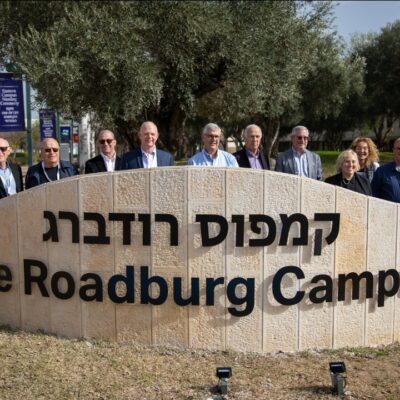Opinion
SAFETY FIRST
Securing our future: Digital safety for Jewish communities in a polarized world
Jewish tradition calls for deep introspection as we enter the month of Elul. We reflect on the past year, considering what we’ve done well and where we need to improve, and confront uncomfortable truths we might prefer to ignore.
Among these truths is our digital behavior: Many of us continue to engage in practices online that leave us and our institutions vulnerable, such as reusing passwords and leaving social media accounts unprotected.

Ekrin/Adobe Stock
The ongoing war between Israel and Hamas, conflict on Israel’s northern border, hostilities with Iran, protests on college campuses, divisions within our families — all of these factors combine to make the Jewish community feel more vulnerable than at any other time in the past 75 years. The polarized political environment in the U.S., particularly with the upcoming elections, exacerbates the situation, as the rise of extremist rhetoric often translates into violence, both physical and digital, against Jewish communities, including a stark rise in antisemitic attacks online. Online spaces turn into battlegrounds for misinformation, hate speech and targeted attacks on Jewish organizations. In addition to the physical attacks and vandalism we read about in the news, Jewish institutions are increasingly targeted by hacking, doxxing and other forms of cyber harassment. These digital threats aim to disrupt and undermine our communal operations and sow fear within our communities.
While JFNA’s recent study found that the vast majority of Jews feel safer when they can see a visible security presence at Jewish institutions, digital security is often invisible to most of our community. It’s vital that we communicate the value and importance of investments in digital security, and that we take a communal approach where resources and knowledge are shared to build a stronger, more resilient network of Jewish organizations.
As we reflect on our commitments to our Jewish community and the wider world, it’s time for Jewish institutions to take decisive steps to protect themselves online. Long-term solutions such as investing in cybersecurity infrastructure, developing incident response plans and drafting internal cybersecurity policies are essential; but there are also actions we can take right now that will go a long way toward keeping our organizations and staff safe.
When helping Jewish organizations and individuals increase their digital safety, we always stress that context matters. Every institution and individual has a different “threat model”: a unique set of vulnerabilities and adversaries that requires a tailored approach to online security. Nevertheless, there are two basic steps that everyone can and should take to create a safer digital environment:
- Turn on two-factor authentication (2FA) for every important account. This includes personal and work Google and Microsoft accounts, Facebook, Instagram, X (formerly Twitter), WhatsApp and any other social media or chat apps. 2FA significantly reduces the risk of phishing attacks, where adversaries trick users into revealing their passwords and other personal information.
- Use a password manager. Passwords are notoriously difficult to create and even harder to remember, leading many people to reuse simple passwords across multiple services. Hackers often exploit this by using stolen account data to break into other accounts. A trusted password manager can help you securely create and store unique, complex passwords for every account.
These steps are just the beginning of your digital security journey, but they are perhaps the most crucial actions you can take right now to stay safe online. Once you’ve secured your core accounts, there’s much more you can do, including hardening your organization’s websites, utilizing passkeys alongside strong passwords, improving data storage practices and developing comprehensive cybersecurity policies for your institution.
As we approach the High Holy Days, the anniversary of Oct. 7 and the U.S. elections, Jewish organizations must prioritize digital security as an essential part of their operations. By taking proactive steps, we can protect our communities from digital threats while continuing to thrive and support one another in these challenging times. This is a resolution for resilience that we must cultivate in the month of Elul and beyond.
Josh Levy is a seasoned digital security expert and the founder of K’lal Digital Safety, which provides strategic digital security support to Jewish communal institutions.
Meredith Lewis is an adjunct faculty member at the Hornstein Program in Jewish Professional Leadership and the senior director of impact at the Community Foundation of Western Massachusetts.

 Add EJP on Google
Add EJP on Google









